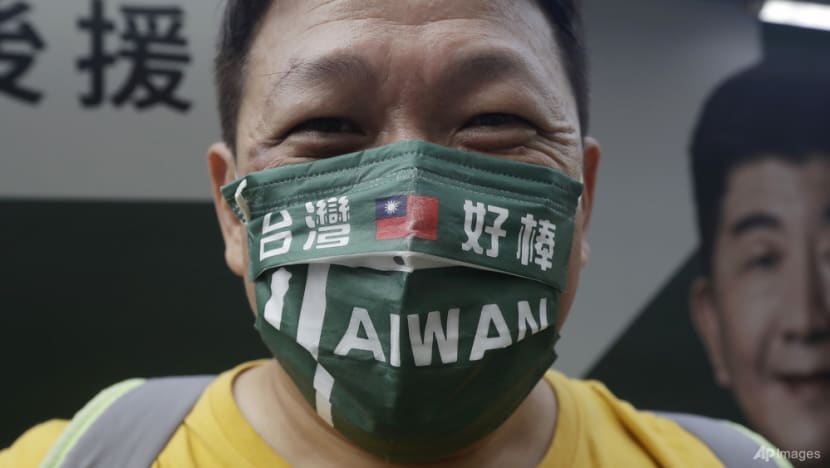Growing discontent towards Taiwan’s ruling party over escalating tensions, sluggish economy
The opposition Kuomintang could win 15 out of the 22 mayoral and county magistrate seats available at Saturday’s local elections, one political opinion tracker has found.

TAIPEI: A growing discontent towards Taiwan’s ruling Democratic Progressive Party (DPP) over the slowing economy and escalating tensions with China could affect its chances at the upcoming local elections.
Many of the DPP supporters appear to have switched their support to its main rival Kuomintang (KMT) and other parties ahead of Saturday’s (Nov 26) elections, according to polls.
Taiwanese political opinion tracker DailyView has projected that the opposition KMT could win 15 out of the 22 mayoral and county magistrate seats, while the DPP could win just five.
TENSE CROSS-STRAITS TIES
This comes as cross-strait relations with China grow increasingly tense.
In early August, China held its largest military exercises around Taiwan, following United States House Speaker Nancy Pelosi’s visit to the island.
A recent poll found that the drills have made more than 70 per cent Taiwanese feel that the chances of a military confrontation across the strait have increased considerably.
The DPP’s tactic of highlighting Beijing’s threat proved successful in the 2020 presidential race, when it won in a landslide.
But with escalating cross-strait tensions, observers believe such fiery rhetoric against China could turn voters off.
National Taiwan Normal University professor Chu Chao-hsiang said: “The drills have made the Taiwanese feel China’s military threat is real. Plus, there’s the bloody experience of the Ukraine war shown on television. It makes people wonder what Taiwan would be like if the same situation happens.”
Beijing has also imposed trade sanctions against some agricultural, fishery and bakery products from Taiwan, raising concerns among the public.
National Taiwan University professor Peng Jing-peng said: “China’s ban on agricultural and fishery imports is a big blow, especially to voters in central and southern Taiwan. This would also affect the way they vote.
TAIWAN’S SLUGGISH ECONOMY
The slowing economy is also on voters’ minds.
At Huanhe South Road Integrated Market in central Taipei, for instance, vendors called on the government to put the people’s interests first, instead of the party’s priorities.
One vendor said: “The key is to boost the economy, not just use empty slogans during the election campaign. They need to interact with ordinary people to understand how difficult their lives are.”
The strong support for KMT’s Taipei mayoral candidate Chiang Wan-an, the great-grandson of former Taiwanese president Chiang Kai-shek, would have been unimaginable just months ago, with the area considered to be a DPP stronghold.
Huanhe South Road Integrated Market chairman Ling Sheng-tung is one of Mr Chiang’s supporters. He had switched his support from the ruling DPP, as he is unhappy with the government’s strong stance towards Beijing.
“People want peace across the strait and the economy to be prioritised,” said the 55-year-old. “No countries want war. It’s bad for everyone, especially the ordinary people. We just want to live our lives in peace.
“We should just have peaceful exchanges across the strait. There's no need to resist China to protect Taiwan.”
Insiders from the DPP have estimated that support for them in the area has fallen, from 70 per cent to less than 40 per cent.
This could foretell woes for the party at the local elections, which are typically a chance for voters to show their dissatisfaction with the party in power.
With President Tsai Ing-wen of the DPP required to step down at the end of her current term, the results could reshape the political landscape for 2024, when the presidential election will be held.

















